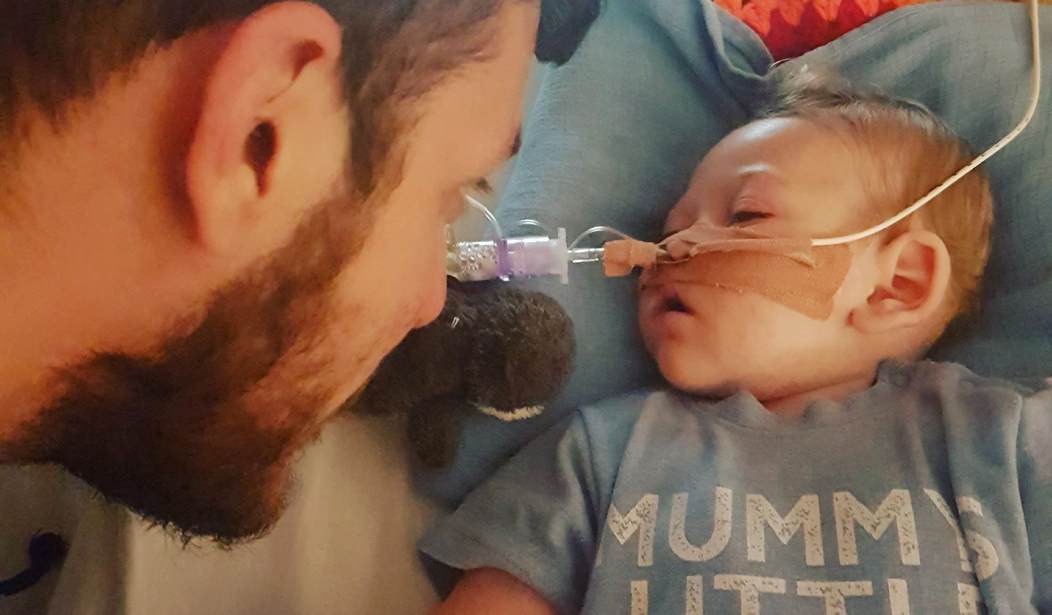This week, Lindsay Graham (R-SC) reintroduced the Parental Rights Amendment as Senate Joint Resolution 48. If passed and ratified by the states, the constitutional amendment would protect parental rights from interference by government bureaucrats. In light of the Charlie Gard story, it seems like the right timing for such an amendment.
The bill has five co-sponsors: Roy Blunt (R-MO), Johnny Isakson (R-GA), James Risch (R-ID), Chuck Grassley (R-IA), and Marco Rubio (R-FL). According to Graham’s website, the amendment would offer the following protections:
- the liberty of parents to direct the upbringing, education, and care of their children is a fundamental right;
- the parental right to direct education includes the right to choose, as an alternative to public education, private, religious, or home schools, and the right to make reasonable choices within public schools for one’s child;
- neither the United States nor any State shall infringe these rights without demonstrating that its governmental interest as applied to the person is of the highest order and not otherwise served;
- the parental rights guaranteed by this article shall not be denied or abridged on account of disability;
- this article shall not be construed to apply to a parental action or decision that would end life; and
- no treaty may be adopted nor shall any source of international law be employed to supersede, modify, interpret, or apply to the rights guaranteed by this article.
The amendment is being championed by ParentalRights.org (PRO). In a statement, the President of PRO, Jim Mason, said,
We are gratified to see this crucial amendment introduced in the U.S. Senate for the fifth straight Congress. If the recent Charlie Gard tragedy in the UK showed us anything it is that children are better served when loving parents make the important decisions about their care.
This is the latest version of the Parental Rights Amendment that has been proposed several times since 2008. The original motivation behind this amendment was to oppose federal interference in parenting decisions, as well as to oppose the United Nations Convention on the Rights of the Child, a treaty that has been ratified by every UN member country except the United States. Constitutional scholars are concerned that this treaty would infringe on U.S. sovereignty and lead to interference by foreign bureaucrats in the rights of parents to raise and care for their children as they see fit.
These concerns were put into sharp focus over the past several weeks as the Charlie Gard saga played out in Great Britain. The parents of the infant boy were blocked from seeking treatment in America for a rare genetic disorder by a labyrinthine bureaucracy, ultimately leading to the boy’s death. The refusal of the British hospital and courts, and the European Union Council on Human Rights, to allow Gard to be transported to the U.S. for treatment was widely viewed as the state exerting its control over the family seeking treatment.
Sen. Graham described the importance of this amendment by saying, “The rights of parents are under assault from bureaucrats who think they know what’s best for someone else’s child. Parental rights do not and should not end when the child leaves their home.”
PRO says that an amendment is necessary because parental rights are under a constant push and pull in the court system. They cite a law in Washington state that “gave any person the ability to override a good parent’s decision about visitation by simply claiming that it would be ‘best’ for children to allow the third-party to have visitation rights.” The case, Troxel v. Granville, reached the U.S. Supreme Court. They note that the results of this case led to more splintering of the law, as six separate opinions were rendered and none actually gained a five-vote majority ruling. In his dissent, Justice Antonin Scalia actually stated that parents have no constitutionally protected rights at all. Only Justice Clarence Thomas argued in his opinion that parental rights are a fundamental right protected under the law.
The confusion caused by this ruling is cited as the main reason a constitutional amendment is required to provide clarity. Precedent prior to 2000 meant that the Supreme Court upheld parental rights as fundamental. Troxel v. Granville undermined that precedent and sent the issue back to the states to adjudicate.
The Parental Rights Amendment has some key supporters, including Education Secretary Betsy DeVos, and Heartland Institute, the free market think tank. Heartland is a strong supporter of homeschooling, and recently hosted an event that discussed the effects of the proposed amendment. At this event, participants cited several examples of how their rights had been infringed by the state, including onerous government regulations and statutes, incorrect medical diagnoses, conflicts over treatment options for children, and infringements on the rights of the parent to determine education options.
Momentum appears to be building for a Parental Rights Amendment. Such an affirmation of parental rights as fundamental could help the United States avoid having a Charlie Gard situation of our own.










Join the conversation as a VIP Member